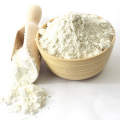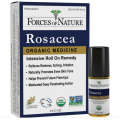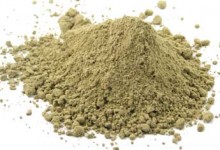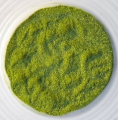 Loading... Please wait...
Loading... Please wait...- Home
- About Us
- Shipping, Returns & FAQ's
- Contact Us
-
For Your Information
- Canadian Customers Have a Choice if Shipping Via UPS
- Aura Cacia Homemade Aromatherapy Recipes
- Bella Nella Altered Art & Paper Crafts Blog
- Forms of Herbal Preparations
- Laundry Tips To Conserve Energy Blog from The Laundress
- The Story of Frontier Natural Products Co-Op
- Sovereign Silver Hydrosol and Aloe Protocol Stops Downward Spiral of Gut Dysbiosis
- Disclaimers
- Recommended Links
- RSS/Recent News
- The Story of Typhoon Housewares
- Reviews/Testimonials
- Raw Ingredients for Mfg
- Home
- Supplements
- Sea Veggie
- Bladderwrack Seaweed Algae Organic Granules/Cut/Powder/Extract Bulk
Bladderwrack Seaweed Algae Organic Granules/Cut/Powder/Extract Bulk
Product Description
Bladderwrack has an advantage in treating the symptoms of rheumatoid arthritis & rheumatism, both used as an external & internal application upon inflamed joints. It has great benefit to cure active thyroid glands & goiter. This plant may be useful to mitigate the excess weight, where obesity is combined with thyroid problem.
Bladderwrack may decrease the blood cholesterol levels in the body possibly due to its fiber content and binding action. It enhances stamina by allowing cells to consume energy efficiently.
Bladderwrack has a toxic action on some strains of E. coli & all strains tested of Neisseria meningitidis. It has fucoidan that inhibits the growth of some unfriendly bacteria and viruses.
Bladderwrack contains moderate quantity of phosphorus, selenium, manganese and zinc and small amounts of vitamins A, C, E and G.But have a high content of several minerals such as iodine,sodium, calcium, magnesium, potassium, sulfur, silicon & iron and high in some B-complex vitamins.
Properties
- Antibacterial.
- Antioxidant.
- Diuretic.
- Emollient.
- Endocrine tonic.
- Expectorant.
- Nutritive.
- Anti-hypothyroid.
- Thyroactive.
- Anti-obesic.
- Anti rheumatic.
- Demulcent.
- Gentle metabolic stimulant.
- Adaptagen.
- Anti-inflammatory.
Cautions: Not to be used during pregnancy or nursing. Large dosage may cause hyperthyroidism, tremor, increased pulse rate & elevated blood pressure. So it is recommended that bladder wrack should not be taken in cases of cardiac problems, or during pregnancy and lactation. As bladderwrack grow in heavy-metal-contaminated water. It may have high levels of toxins such as arsenic and lead, causing to nerve damage, kidney damage, or other problems.
Scientific research reported the effects of iodine toxicity, the high iodine amount in bladderwrack may cause abnormal thyroid conditions & increased hyperthyroidism and reduced hypothyroidism from ingestion of kelp products. Bladderwrack has high content of iodine, a heavy metal. Please use with caution as it mat may considered potentially unsafe.
Dosage
- Dried bladderwrack: 5-10 gm or by infusion. Three times a day.
- Liquid Extract: 1:1 in 25% alcohol, 4-8ml . Three times a day.
Drug Interactions: Based on scientific study, bladderwrack may have anticoagulant properties. Therefore, bladderwrack may enhance the risk of bleeding when taken with drugs in the same time that increase the risk of bleeding. Some examples are: Aspirin, Warfarin, Heparin, Clopidogrel.
Botanical Name: fucus vesiculosus
Origin: France/Canada
Notes: Kosher. Non-irradiated. aka Kelp, Black-tang, Bladder, Bladder fucus, Sea wrack, Blasen-tang, Brown algae, Common seawrack, Cut weed, Dyers fucus, Edible seaweed, Fucoidan, Black tang, Rockweed, Kelp-ware, Quercus marina, Cutweed, Blasentang, Seetang.
Read More About It
Bladderwrack: An Overview of the Research and Indications (pdf)
The Herbal Medicine Chest by Sujata Bristow
The Book Of Herbs by Dawn Titmus (Editor), Thunder Bay Press
Herbal Prescriptions for Health and Healing: Your Everyday Guide to Using Herbs Safely and Effectively by Donald J. Brown, Don Brown
Specifications may change without notice.
*FDA Disclaimer
You Recently Viewed...
Currency Converter
Choose a currency below to display product prices in the selected currency.




























